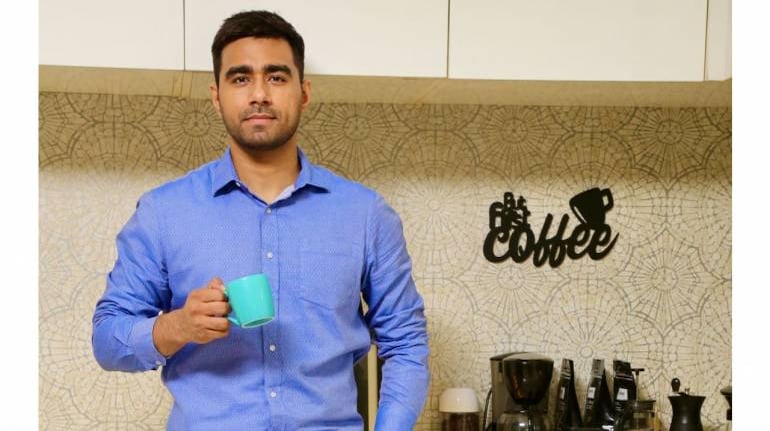This week, Rage Coffee announced that it has raised $5 million in series A funding. A look at the company’s plans, including new launches, key markets and corporate tie-ups.

Bharat Sethi is the Delhi-based founder of Rage Coffee. He says that nearly 75% of the company’s sales are from parts of the country other than South India.
Rage Coffee has seen growth zoom during the pandemic, as people confined to their homes ordered and drank more coffee . Earlier this week, the New Delhi-based FMCG coffee startup announced that it had raised $5 million as part of its A series funding round led by Sixth Sense Ventures. In April 2021, it had raised an undisclosed amount from investors led by Refex Capital.
The company, founded in 2018, targets millennials. Around 75% of its sales come through online channels, and the rest through the offline route. It sells instant coffee, ground coffee and cold brew bags of coffee in flavours like Irish hazelnut, crème caramel and mint mocha.
In an interview, Rage Coffee founder and CEO Bharat Sethi spoke about the company’s growth during the pandemic period, development of new products including filter coffee, potential tie-ups and strategy to expand abroad. Excerpts:
How has the pandemic affected sales? Is Rage Coffee’s growth continuing after the second wave?
When the pandemic began, we were well positioned with quality coffee products using arabica beans. With more people ordering online, we doubled our marketing efforts paving the way to leapfrog the growth. From 2020-21 we grew ten times. From April to August this year, we have seen three times growth so far.
We are expecting a revenue of Rs 35 crore this fiscal compared to Rs 5 crore last year. The annualised recurring return will be much higher, in the range of Rs 65-75 crore.
Usually, instant coffee makers use robusta coffee beans. Has using the costlier arabica beans helped you in the domestic market, which, apart from South India, prefers tea to coffee?
The market is changing with availability of good products. Nearly 75% of our sales are from parts of the country other than South India. From our research, we knew that caffeine kick and sensory aspects like taste and aroma are equally important for a coffee drinker. So, we decided to use arabica beans that provide good flavour and aroma.
Our products provide 90 to 120 mg of caffeine in a single serving, compared with 30 to 40 mg of many other instant coffees available in the market. It is comparable to high-end roasted coffee. We use crystallised freeze-drying process to preserve the aroma… We source coffee beans from Coorg and Chikmagalur, and from Ethiopia.
South India prefers filter coffee mostly. Considering that majority of your sales are from outside the region, do you have plans to offer filter coffee?
Yes, we are planning to launch it by the first week of September. It will be a blend of robusta and chicory with a dash of bitterness. We believe that if made in the right manner, it will have demand in the entire country. It will be our first robusta coffee product and one more addition to the ground coffee category.
What is the size of your institutional sales? Do you have corporate tie-ups?
Of our institutional sales, 80% goes to the hotel, restaurant and catering (Horeca) segment. We are exploring the possibility of tie-ups with corporates. In most cases, we can’t come to an agreement on the prices. Many organisations have coffee-vending machines, a segment we have not ventured into yet. But we have plans to enter the coffee equipment business later. However, our products find increasing use in corporate gifting.
Are you looking at associating with airlines or railways?
Yes, we are in talks with Spice Jet and Indian Railways. Pricing is the issue. But we think we can offer products cheaply with some changes. We need to change the packaging and weight without compromising on the quality of the product. We may have to use plastic packets, which could help avoid damage during shipment. We can cover the risk of lower margin through huge volumes. At present, the company uses natural materials for packaging.
Do you plan to expand outside the country?
We have presence in the US and in the UK in Europe. The instant coffee segment in the US is growing rapidly because of convenience aspect. We sell through Amazon and through independent retailers and specialty stores. Europe is not as big a coffee drinking nation as America.
We are also starting out in the Gulf region through the UAE. The region has a mix of instant coffee and commercial coffee equipment drinkers. Instant coffee has a good market in Saudi Arabia, where we have signed up with a distributor, and are in the process of dispatching the consignment.
Any new products in the pipeline?
We are looking at coffee concentrates, chewables, snacking and supplement items. Right now, 75% of the coffee sales is controlled by a few multinationals. With some products we have and some we are planning to launch, we will be directly competing with them. We are also in the process of R&D for introducing new flavours.
source: http://www.moneycontrol.com / MoneyControl.com / Home> News> Trends> Features / by PK Krishnakumar / August 24th, 2021

